Transgender race minorities face extra 'hurdles' coming out
- Published
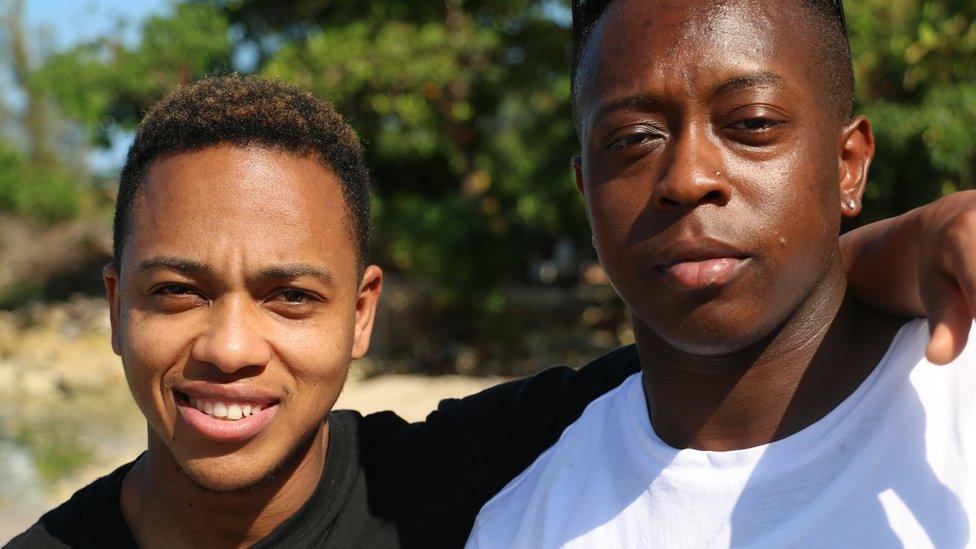
The chair of parliament's Women and Equalities Committee has told Newsbeat transgender people from ethnic minorities face extra "hurdles" in coming out.
Maria Miller said schools were partly responsible for making sure people from black and Asian backgrounds had the right level of support.
"I think [people] who come from particularly traditional communities in our country will face specific hurdles that they might have to overcome," she said.
Newsbeat and Radio 1 Stories has followed two transgender men from Jamaica, who now live in the UK, back to their home country to reveal their new identity to their families.
Romario's story
For a long time Romario Wanliss' life was not about living - it was about surviving.
He was born in Jamaica and like many transgender people from black or Asian backgrounds, he feels like he faced extra challenges.
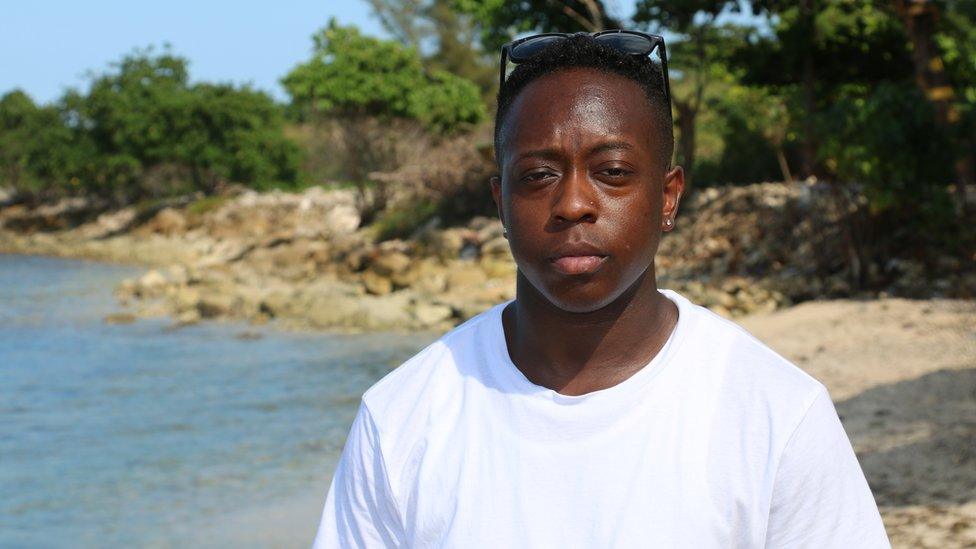
"I thought being Jamaican made it harder for me," he told Newsbeat.
"It was always difficult for me when I'm expected to play the submissive role of being female when I actually want to be the man, I want to be masculine.
"You've got to do it like a man, you got to be strong, you can't really be soft - so you can't really talk about your emotions.
"You've got to deal with everything and you've got to survive, so for a long time it was survival, survival, survival."
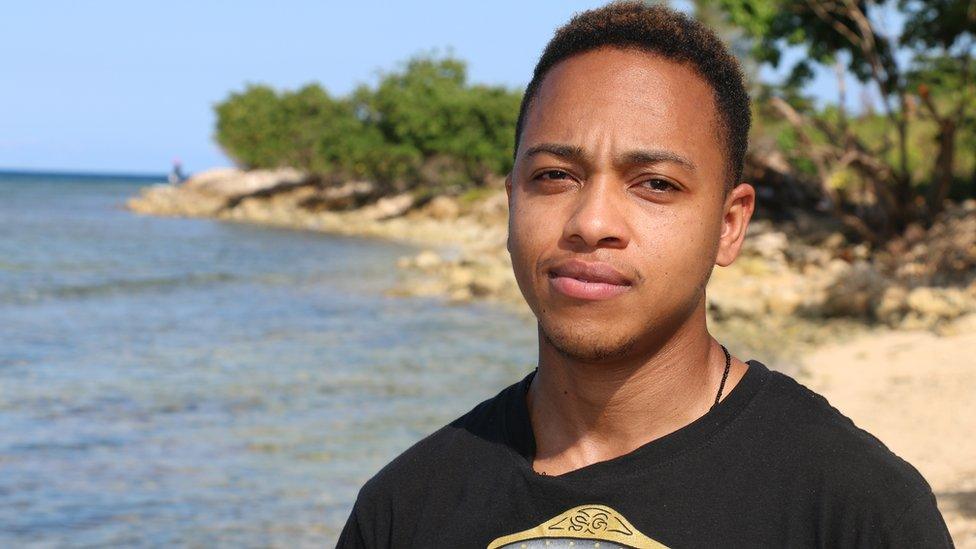
School support 'needed'
Last month the Women and Equalities committee published a review into transgender discrimination.
Its chair Maria Miller told Newsbeat schools have a responsibility to make things easier for people from black and Asian backgrounds who are transgender and their families.
"There is a need for schools in those areas to be particularly focused on how they can make sure that the support is there not just for young people but perhaps for their parents as well."
Jamaica is considered by some human rights groups as one of the most transphobic countries in the world.
Steffan's story
Steffan Zachiyah also found it difficult growing up as transgender in Jamaica.
"I had to practically beg my sisters not to call me Stephanie," he explains.
"It's hard to get people of Caribbean or West Indian background to understand when someone is not living as what's perceived to be the norm."
In 2012, The Inter-American Commission on Human Rights, an organisation which monitors human rights, said that discrimination based on sexual orientation, gender identity and gender expression was widespread throughout Jamaica.
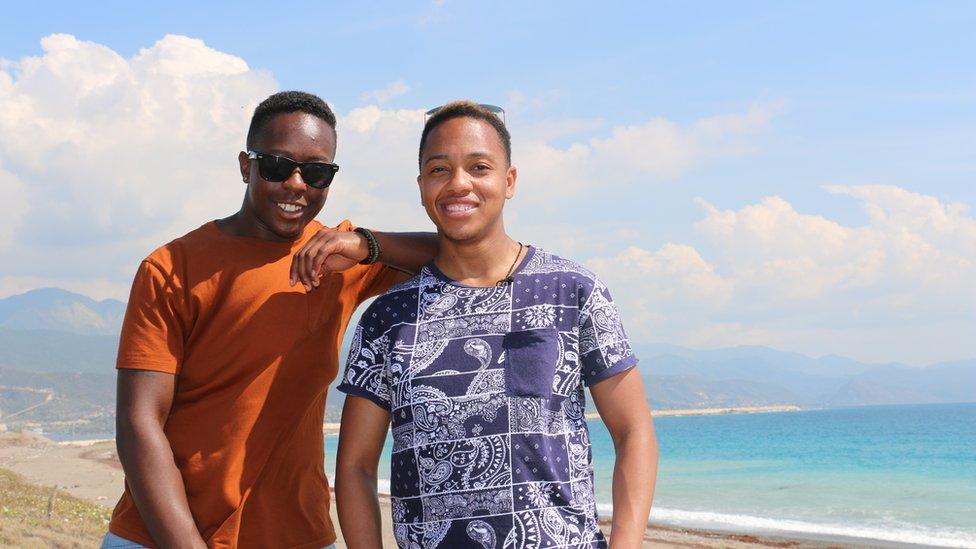
Steffan and Romario reveal being transmen to their families in Jamaica
Dane Lewis, director of J-Flag - a group that supports the LGBT community in Jamaica - told us sexual orientation and gender identity are issues that are not discussed in Jamaica.
"The source of the discrimination really has a lot to do with societal expectations of what a man and a woman should look like and how they should present themselves," he said.
There are no official figures for the number of people who experience gender dysphoria in the UK but a survey of 10,000 people by the Equality and Human Rights Commission in 2012 suggested that 1% of the population was transgender.
The truth is no-one really knows because many people never seek help.
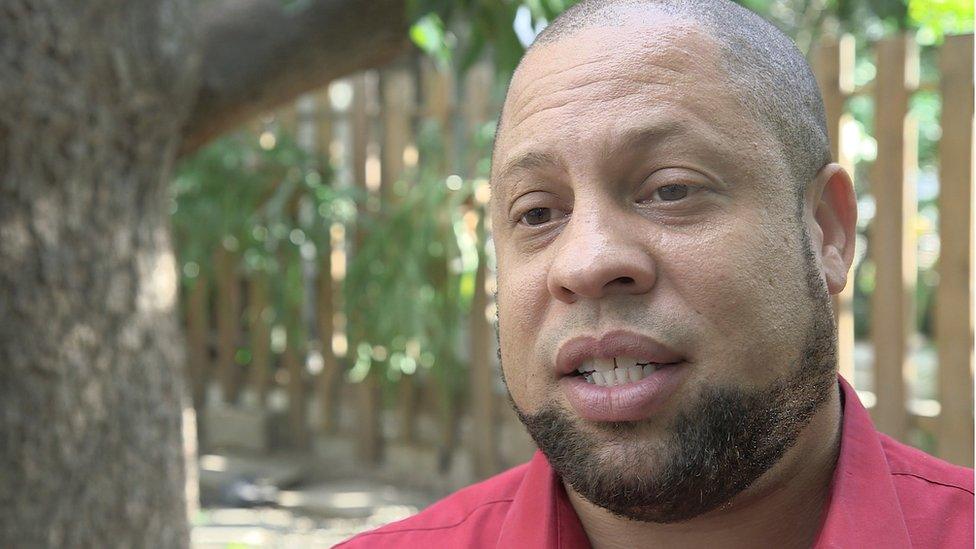
Dane Lewis, executive director of J-Flag
Although Steffan has been back to Jamaica since leaving 12 years ago, he always made an effort to dress more femininely to conceal the fact he was transgender.
But now, because of the changes brought on by taking testosterone it's impossible to hide his new identity.
"It still does affect me," he explains.
"My mum was heavily influenced by what people would think.
"I didn't feel like I could ever sit down with my mum and voice exactly how I felt inside because it would always get labelled as, 'Ah, you're just sick in the head.'"
Watch our documentary Transgender: Back to Jamaica on BBC iPlayer.
For help and support on gender identity and transgender issues, check out the BBC Advice pages.
For more stories like this one you can now download the BBC Newsbeat app straight to your device. For iOS go here, external. For Android go here, external.